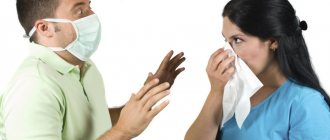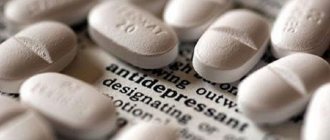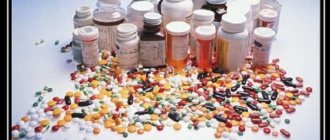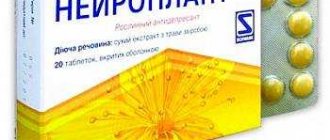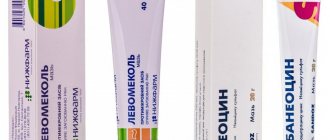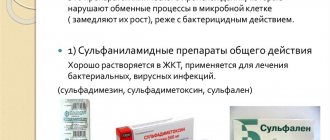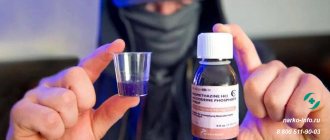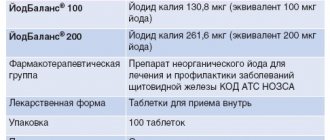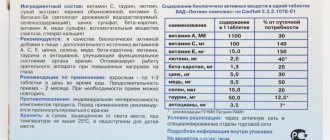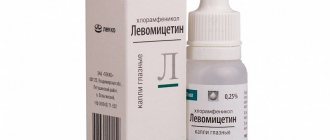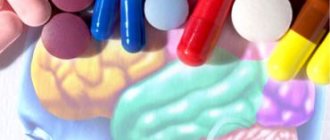Depression can be described as general emotional exhaustion. As a rule, this is due to the inability to solve an important task, from the point of view of a given person. When a person is suppressed by external circumstances and fails to adequately realize his desires and ambitions, the body may well respond with situational depression.
Another common type of depressive disorder is somatization depression. In this case, mental discomfort results in diseases of the internal organs (peptic ulcer, hormonal disorders, cardiovascular problems).
Depression is also known due to fluctuations in the level of sex hormones (during menopause or after childbirth), as a result of prolonged stress, chronic or incurable illness, injury or disability.
In general, depression is irritability multiplied by weakness against the background of a low level of one’s own pleasure hormones (enkephalins and endorphins) in the brain, which leads to dissatisfaction with oneself and the surrounding reality in the absence of the strength to change anything radically.
Possible workarounds include support from the environment, a specialist (psychiatrist or psychologist) and/or medication. If circumstances are favorable, this will help you choose new priorities in life and get rid of the very reason that led to your painful state of mind.
Medicines that treat depression are called antidepressants. Their use has made a real splash in psychiatry and has significantly improved the prognosis of patients with depression, and also significantly reduced the number of suicides due to depressive disorders.
I am depressed!
This can often be heard from friends or read on the forum. But, as a rule, the person who makes such statements is mistaken. After all, what is meant by “depression” in a colloquial environment? Usually this simply means a short-term deterioration in mood, irritability, fatigue under the influence of circumstances. Sometimes a person is just having a “bad day” or “got off on the wrong foot” and they call it depression.
Nowadays, people are constantly faced with stress: overload at work, a frantic pace of life, inflated demands on themselves, a huge amount of information that flows from all sources. It is not surprising that many people cannot cope with so many stressors, and this can manifest itself in various symptoms:
- anxiety;
- irritability;
- fatigue;
- sleep disorders;
- obsessive thoughts;
- panic attacks.
If these symptoms are short-lived and go away on their own, do not be too upset. In most cases, just a good rest will help defeat them. But sometimes a vacation is not enough, and the body needs a little help. It is very important to choose the right medications for this.
Antidepressants
These psychotropic medications are most often used to treat depression.
Their action is aimed at regulating the amount of neurotransmitters, “hormones of happiness.” While taking antidepressants, the patient's insomnia disappears and his appetite returns. Melancholy and apathy give way to a normal mood, lethargy and obsessive thoughts go away. In medical practice, doctors divide antidepressants into several groups. Depending on the spectrum of action, medications of the group are selected that will help cope with the most pronounced clinical manifestations of the disease.
There are 3 main groups of antidepressants:
- sedatives;
- stimulants;
- broad-spectrum drugs.
Medicines help with insomnia, improve mood, or regulate certain thinking processes.
These drugs are not recommended to be taken uncontrolled and self-administered. They are not prescribed even for the treatment of mild depression. Some scientists believe that antidepressants can cause more harm to the patient than help in treatment.
Such medications are designed for a long course of therapy. The first improvements may occur only after months. Even the fastest antidepressants begin to act no earlier than 7-10 days after starting to take them. Therefore, it is important to adhere to the treatment regimen recommended by your doctor and not wait for results right away.
Taking such a psychotropic drug is rarely without side effects. Especially in the first 3-4 weeks of using the drug. Possible exacerbation of suicidal thoughts and increased signs of aggression. If such side effects occur, the doctor stops the drug or revises its dosage. To avoid relapse of the disease, you should not abruptly stop taking these medications.
Stop taking the drug, lowering its dosage for at least 3-4 weeks. While taking the medication, lethargy, drowsiness and anxiety may develop. Taking some antidepressants reduces the patient's concentration and sexual function. When using certain medications, you should not drive a car.
The use of the drug under the supervision of specialists, in the prescribed dosages and according to the recommended treatment regimen is safe and will be beneficial. Self-medication is unacceptable and can cause harm to health.
What is depression really?
This is a long-term (2 weeks or more) pronounced decrease in mood, which is accompanied by several additional symptoms: decreased activity, slower mental activity, lack of joy in life. That is, if you are no longer touched by the usual joys - hobbies, family, get-togethers with friends, then this is a reason to think, monitor your condition and, perhaps, consult a doctor.
If your usual joys no longer touch you, then this is a reason to think about it and, perhaps, consult a doctor.
True depression is a serious and often severe illness that requires mandatory treatment by a psychiatrist with the prescription of special medications.
Antidepressants cure or cripple: harm of antidepressants, side effects, is it worth taking?
Tranquilizers are a group of drugs that have anti-anxiety (anxiolytic) and sedative effects. In addition, these medications can have a hypnotic, anticonvulsant effect and affect muscle relaxation. Tranquilizers allow you to get rid of fears, anxiety, internal tension and anxiety. These medications are prescribed for the treatment of neuroses and neurotic conditions. The most famous drugs:
- Phenazepam;
- Buspirone;
- Atarax;
- Spitomin et al.
Tranquilizers have a specific chemical structure that differs from the structure of antidepressants.
The drugs are used for gastric ulcers and hypertension as additional medications, as well as before surgery. If a patient experiences epileptic seizures that develop into status epilepticus (a large number of seizures occurring one after another), then he is prescribed drugs from this group. In addition, these medications are prescribed for sleep disorders (insomnia).
Treatment is carried out under the supervision of a doctor. Doses and duration of therapy depend on the type of pathology and the individual characteristics of the patient’s body. With long-term use of tranquilizers, side effects appear in the form of:
- drug addiction;
- skin allergic reactions;
- disorders of the liver and kidneys.
People whose work requires increased concentration (drivers, operators, etc.) should take medications with caution.
There are differences between antidepressants and tranquilizers:
- 1. These groups of medications have different chemical structures and differ in their mechanisms of action.
- 2. Antidepressants can be taken for a long period of time, and tranquilizers are taken in small doses and prescribed in short courses.
- 3. Tranquilizers have fewer side effects.
- 4. Indications for use differ: antidepressants help improve mood, and tranquilizers help get rid of feelings of fear and panic.
Tranquilizers can be used in various branches of medicine (they are used by resuscitators or anesthesiologists), and antidepressants are prescribed only by psychiatrists.
An overdose of tranquilizers or their excessively long-term use sometimes leads to drug intoxication, which is characterized by headache, dizziness, nystagmus, diplopia, dysarthria, dyspepsia, anemia, leukopenia. In such cases, it is advisable to gradually reduce the dose of the drug.
Toxic reactions rarely accompany treatment with tranquilizers. Typically, intoxication is more pronounced in older people, with liver disorders, a combination of treatment with tranquilizers, taking other psychotropic drugs that depress the central nervous system, and drinking alcohol. Therefore, when prescribing tranquilizers to older people, treatment should begin with a small dose, followed by a gradual increase to a sufficient therapeutic dose, which is usually significantly lower than the average.
With prolonged courses of treatment with tranquilizers from the group of benzodiazepines with a long half-life, cumulation of the drug and accumulation in tissues is possible, which happens when the interval between doses of the drug is less than 24 hours. In such cases, the possibility of drug intoxication increases, especially in elderly patients.
In this case, it is possible to develop anemia, leukopenia, dyspepsia, the appearance of headache, dizziness, and less often psychomotor agitation and delirium, which disappear after discontinuation of the drug. Severe acute or chronic intoxication with tranquilizers can lead to stupor and the need for resuscitation.
In approximately 1% of patients taking tranquilizers, the development of paradoxical neurotic reactions was noted: psychomotor agitation, emotional irritability, anger, tears and similar manifestations, which are usually associated with genetically determined metabolic characteristics.
Poor tolerance to tranquilizers is sometimes (rarely) manifested by allergic reactions (such as itching, urticaria), usually requiring withdrawal or replacement of the drug.
Of the side effects when using tranquilizers of the benzodiazepine group, respiratory failure, paradoxical reactions with anxiety and changes in consciousness (more often in patients with organic damage to the central nervous system) deserve special attention. Such patients tend to develop tolerance, and sometimes mental or physical dependence.
There is an opinion about the possible teratogenic effect of benzodiazepines, especially when taken in the first trimester of pregnancy.
All tranquilizers work at the level of brain systems that form emotional reactions. This includes the limbic system, the reticular formation, the hypothalamus, and the thalamic nuclei. That is, this is a huge number of nerve cells scattered throughout different parts of the central nervous system, but interconnected. Tranquilizers lead to the suppression of excitation in these structures, and therefore the degree of a person’s emotionality decreases.
The direct mechanism of action is well studied for benzodiazepine derivatives. There are various benzodiazepine receptors in the brain that are closely related to gamma-aminobutyric acid (GABA) receptors. GABA is the main inhibitory substance in the nervous system. Benzodiazepine derivatives act on their receptors, which is transmitted to GABA receptors.
As a result, the inhibition system is activated at all levels of the central nervous system. Depending on which benzodiazepine receptors are involved, the nervous system realizes one or another effect. Therefore, for example, there are tranquilizers with a pronounced hypnotic effect, which are used primarily for the treatment of sleep disorders (Nitrazepam).
Tranquilizers of other pharmacological groups can affect nervous excitability not only through GABA, but also with the involvement of other transmitter substances in the brain (serotonin, acetylcholine, adrenaline and others). But the result is the same: elimination of anxiety.
Several antidepressants in tablets and capsules are scattered on the table
Fluoxetine is available for free purchase at pharmacies without a prescription. It is accepted like this:
- 20 mg once a day for a couple of weeks. Then increase the dose by adding a similar amount of the drug in the evening.
- Elderly people start taking the drug with 60 mg.
- The maximum daily dose is 80 mg.
- Course duration is 1-4 weeks.
Fevarin can be bought at a pharmacy only with a prescription.Its:
- Take the minimum dose of 1 tablet in the evening and increase to the optimal dose of 2 tablets per day.
- Drink a small amount of clean water.
- The maximum duration of treatment is 70 days.
Amitriptyline is available for purchase without a prescription. Features of its use:
- the starting daily dose is 25-50 mg
- within 6 days increases to 200 mg if treated in a hospital
- The course duration ranges from 3-6 months
- elderly patients increase the dose only under the supervision of a doctor
- The best time to take it is in the evening, since the drug has a soporific effect on the body
Lenuxin is also available over the counter for those suffering from depression. Take it like this:
- at any convenient time of the day
- repeating course 2-4 weeks for 6 months
- minimum dose 10 mg once daily
Afobazol represents a group of mild antidepressants available for purchase at pharmacies without a prescription. Features of its use:
- only after eating
- 10 mg three times a day
- maximum daily dose - 60 mg
- course 2-4 weeks
- if necessary, extend the course to 90 days
Zoloft can be bought at a pharmacy without a prescription. Features of its use:
- once a day after meals
- minimum starting dose 25 mg
- a maximum of 50 mg is possible a week after starting the drug
- Course duration from 4 weeks to 3 months
Fruits and vegetables are laid out on the table, which help cope with depression.
Among the herbal antidepressants available for purchase at the pharmacy or prepared independently, we note:
- St. John's wort is the most powerful herbal representative. A number of antidepressant drugs are made on its basis.
- Infusions of lemongrass, maralia root, rhodiola rosea, immortelle, ginseng.
- Leuzea extract in alcohol.
- Lure.
- Infusion of red clover, blue honeysuckle, oregano, motherwort.
- Chamomile, dill, cumin.
- Valerian, peppermint, hops, lemon balm.
- Hawthorn.
- Angelica officinalis.
- Calendula.
When depressed, people often reach for food. The latter are able to alleviate it and even level it out in the early stages.
Among the products with antidepressant properties, we note:
- Rich in omega-3 fatty acids. These are fish, for example, salmon, cod, herring, mackerel, sardine, salmon, as well as avocados, seeds, nuts, and unrefined vegetable oil.
- Sea kale.
- Lean meats such as turkey, chicken, pork, beef.
- Egg white.
- Bright fruits - bananas, oranges, persimmons, tangerines.
- Bitter chocolate.
- Honey.
- Oatmeal, buckwheat.
- Vegetables and greens - tomatoes, cauliflower, beets, chili and sweet peppers, celery, broccoli, lettuce, eggplant, carrots.
- Cheese.
The best fruit antidepressant is the one that has a bright color. Since people are different in their taste preferences, one person will be pleased, for example, with a banana, and the other with a persimmon.
By trial and error, you will find the best fruit to balance your mood.
an open can of tranquilizers lies on the table.
The first are substances that eliminate feelings of fear, anxiety, excessive excitement, internal emotional tension through a stimulating effect on a special area of the human brain. The latter is a kind of brake for such processes.
a picture with the caption “is there any benefit from taking antidepressants?”
What drugs are used to treat depression?
They have a common name - antidepressants. It is worth noting that in recent years the indications for the prescription of antidepressants have expanded significantly. Numerous studies have been conducted that have shown the effectiveness of antidepressants not only for depression, but also for anxiety, sleep disorders (insomnia), neuroses and even neuropathic pain. Today, drugs from different groups of antidepressants are widely prescribed by psychiatrists, neurologists and even therapists.
The most commonly used drugs are two groups.
Tricyclic antidepressants
These are old drugs that are considered the most powerful:
- Amitriptyline is a drug with strong sedative and powerful antidepressant effects. In large doses it is used to treat severe depression, in small doses for milder disorders. It relieves anxiety well and has a hypnotic effect.
- Anafranil is a drug of balanced action, usually easier to tolerate than amitriptyline, and also relieves anxiety well. Prescribed for the treatment of depression from mild to severe, various anxiety disorders.
- Melipramine has a stimulating effect and is used to treat apathetic depression.
Selective serotonin reuptake inhibitors (SSRIs)
This is a more modern group of drugs. Their advantages are good tolerability and few or no side effects.
Often from this group are assigned:
- Fevarin has anti-anxiety and good antidepressant effects. With long-term use, it normalizes sleep if it has been disturbed.
- Zoloft is a fairly strong daytime antidepressant. Relieves anxiety and obsessive thoughts without causing drowsiness.
- Paxil relieves anxiety and is often prescribed to treat panic attacks.
There are many more modern antidepressants that have few side effects and are well tolerated:
- Ixel;
- Velaxin;
- Valdoxan;
- Trittico;
- Cymbalta and others.
But strong antidepressants are not sold without a prescription .
They can only be prescribed by a doctor: a psychiatrist, a neurologist, or sometimes a therapist.
SSRI
Selective norepinephrine inhibitors (reboxetine, dosage 8–12 mg per day, half-life 13 hours, active metabolite desetylreboxetine) increase the concentration of norepinephrine in the synaptic cleft. Due to the numerous side effects associated with the influence of norepinephrine, SNRIs are used only for severe depressive episodes. Reboxetine is metabolized by CYP3A4, which limits its use in combination with drugs that affect the functioning of this cytochrome.
Why can't you take antidepressants without a prescription?
- Only a doctor can assess the risk of side effects for a particular patient.
- Different antidepressants have different nuances of therapeutic action. If the medicine is chosen incorrectly, at best it will not help, at worst it will harm.
- Dose selection is carried out individually. If you increase the dose too quickly on your own, you can experience a lot of unpleasant consequences.
- Cancellation should also be carried out gradually and under the supervision of a doctor. Otherwise, you risk withdrawal symptoms.
The most popular tricyclic antidepressants list
The proven and best antidepressant today is Amitriptyline. In addition, the following tricyclic stimulant antidepressants are popular among doctors at the psychiatry clinic and patients at the Yusupov Hospital:
- Imipramine;
- Trimipramine;
- Nortriptyline;
- Desipramine;
- Fluoroacyzine;
- Tofranil;
- Clomipramine;
- Elavil;
- Protriptyline;
- Azafen;
- Trimipramine;
- Doxepin;
- Melipramine;
- Anafranil;
- Clofranil;
- Saroten Retard;
- Maprotiline.
What to do?
There are a number of drugs that are sold without a prescription. They are not effective for clinical depression, but they will help cope with stress, short-term sleep disorders and irritability. With their help, you can try to ease your psycho-emotional state a little:
- Glycine is one of the most popular remedies. Prescribed starting from childhood, for stress, fatigue, emotional overstrain. Sometimes effective for minor sleep disorders.
- Afobazol . It has an anti-anxiety effect, eliminates feelings of fear, tearfulness, and irritability. It is used in the treatment of vegetative-vascular dystonia and even in alcoholism, to alleviate the symptoms of alcohol withdrawal. Not addictive. Please note that it is contraindicated for children under 18 years of age.
- Novo-passit . Quite a strong sedative for nervousness and irritability. Effective in reducing concentration, memory, and fatigue. Helps restore the nervous system during periods of increased stress.
Over-the-counter medications will not cope with clinical depression, but they can alleviate the psycho-emotional state.
- Stressitis . Well calms, relieves irritability, anxiety, improves sleep. During the treatment period, driving and other activities that require increased concentration are not recommended.
- Persen is a herbal medicine. Contains extracts of valerian, lemon balm and peppermint. Has a calming and anti-anxiety effect. It helps well with increased excitability, emotional lability, and tearfulness. Can be used in the complex treatment of mild anxiety and depressive disorders, facilitating the withdrawal of potent drugs.
- Magne B6 . Increases the body's resistance to stress. Magnesium deficiency can lead to an imbalance in the nervous system, irritability, and sleep disturbances, so Magne B6 has a positive effect in these cases.
- Tenoten . It has an anti-anxiety, calming, anti-asthenic effect, helps cope with stress and psycho-emotional stress. Relieves irritability and tension. Can be used for neurotic conditions.
What are antidepressants and when are they prescribed?
The functioning of our brain, including the general background of mood and emotions, depends on the content of special substances in it - neurotransmitters. One of these substances, serotonin, is called the hormone of joy. It maintains a good mood and creates a feeling of happiness. In people with depression, serotonin levels decrease.
These are purely biochemical processes, and telling a person suffering from depression due to low serotonin levels to “just pull yourself together and start moving” is about as productive as telling a patient with diabetes to maintain the desired sugar level through willpower.
Antidepressants increase the amount of serotonin in the body, restoring a person’s “normal” state.
By the way, they are prescribed not only to lift your mood. Another common area for the use of antidepressants is chronic pain (back pain, headaches, fibromyalgia, irritable bowel syndrome pain, etc.). Against the background of constant pain, the synthesis of the body’s own painkillers is disrupted; doctors call this dysfunction of the antinociceptive system. Antidepressants restore natural pain suppression mechanisms. Moreover, if their main effect - improving mood - takes 2-3 weeks, then the analgesic effect appears literally with 1-2 tablets.
Antidepressants are also recommended for anxiety disorders, premenstrual and premenopausal syndromes, urinary and fecal incontinence, and other pathologies.
When should you see a doctor?
- If a decrease in mood has been observed for more than two weeks, and attempts at self-treatment have been ineffective.
- If you have thoughts about not wanting to live or suicidal thoughts.
- If a depressive state significantly disrupts the usual course of life: you cannot work, fully communicate with your family, or enjoy what previously brought joy.
You can contact a psychiatrist confidentially. Information about the fact of treatment, not to mention the diagnosis and treatment, is a medical secret: it is not reported to work, it is not disclosed. It is better to diagnose depression on time and begin treatment than to bring it to advanced stages.
Literature
- BAUER M., PFENNIG A., SEVERUS E., WYBROW P.S., ANGST J., MÜLLER H.-YU CLINICAL RECOMMENDATIONS OF THE WORLD FEDERATION OF SOCIETIES OF BIOLOGICAL PSYCHIATRY FOR BIOLOGICAL THERAPY OF UNIPOLAR DEPRESSIVE DISORDERS PART 1: ACUTE AND CONTINUED TREATMENT OF UNIPOLAR DEPRESSIVE DISORDERS AS OF 2013//MODERN THERAPY OF MENTAL DISORDERS Number: 4 Year: 2015 Pages: 33-40
- Antidepressant therapy and other treatments for depressive disorders. Report of the CINP Working Group based on a review of the evidence. M., 2008; 215 p.
- Baklanov V.V., Anikeeva A.G., Karataeva Zh.E. METHODOLOGICAL RECOMMENDATIONS FOR DIAGNOSIS AND TREATMENT OF DEPRESSION IN HEALTH INSTITUTIONS PROVIDING PRIMARY HEALTH CARE TO THE POPULATION Syktyvkar, 2011
Review of modern antidepressants
| Nomination | place | Name of product | price |
| Review of “neutral” antidepressants | 1 | Sertraline | 568 ₽ |
| 2 | Venlafaxine | 348 ₽ | |
| 3 | Escitalopram | 507 ₽ | |
| 4 | Duloxetine | 641 ₽ | |
| antidepressants with an “invigorating” effect | 1 | Fluoxetine | 51 ₽ |
| 2 | Paroxetine | 322 ₽ | |
| "calming" antidepressants | 1 | Fluvoxamine | 758 ₽ |
| 2 | Trazodone | 754 ₽ | |
| 3 | Amitriptyline | 59 ₽ |
↑ Antidepressants with a predominantly activating effect
- Citalopram - Citalopram (cipramil, ciprolex) - tablets of 20 and 40 mg. Considered the most effective of the SSRIs. Used for severe depression.
- Fluoxetine - Fluoxetine (Profluzac, Prodep, Prozac) - 20 mg capsules. SSRIs with pronounced activating and antidepressant properties. Used for depression with ideomotor retardation, apathy, somatovegetative equivalents of depression, and bulimia nervosa. The maximum daily dose is 80-100 mg.
- Fluvoxamine (fevarin) - tablets of 50 and 100 mg. An antidepressant from the SSRI group. Prescribed for depression with lethargy, apathy, 100-150 mg per day.
- Imizine - Imizine (imipramine, melipramine, tofra-nil) - 25 mg tablets. A drug with a distinct antipsychotic effect and a pronounced stimulating effect. Indicated for depression with lethargy, but can increase anxious depression, depression with delusions in schizophrenia, and activate delusional symptoms. Available in ampoules. The average daily dose is up to 200 mg.
- Clomipramine - Clomipramine (clofranil, anafranil, gidifen) - ampoules and dragees of 25 mg. A strong antidepressant with a balanced effect. Effective for obsessions.
Magic pills - their groups
All antidepressants are divided into 2 large groups:
- Thymiretics are drugs with a stimulating effect that are used to treat depressive conditions with signs of depression and depression.
- Thymoleptics are drugs that have sedative properties. Treatment of depression with predominantly excitatory processes.
Antidepressants are further divided according to their mechanism of action.
Indiscriminate action:
- Melipramine;
- Amizol.
Selective action:
- block the uptake of serotonin - Flunisan, Sertraline, Fluvoxamine;
- block the uptake of norepinephrine - Maproteline, Reboxetine.
Monoamine oxidase inhibitors:
- non-selective (inhibit monoamine oxidase A and B) – Transamine;
- selective (inhibit monoamine oxidase A) - Autorix.
Antidepressants of other pharmacological groups - Coaxil, Mirtazapine.
How long should you take antidepressants?
As a rule, the course of treatment can last up to six months for anxiety, pain and panic attacks, and up to a year or more for depression, especially severe ones. Some will have to take antidepressants for life, and there is nothing wrong with that. Believe me, with your depression and neuroses you will feel much worse than if you took pills for life. Don't be afraid for your liver - modern pills are very good friends with it. There are people who need to take heart medications or hormones for life, and no one has died. Compared to hormones, antidepressants are garbage.
You always need to evaluate your condition - if you feel better, then you should not quit the pills, you must definitely complete the course.
There's something for everyone
Antidepressants are most often not cheap, we have compiled a list of the most inexpensive of them in ascending order of price, with the cheapest drugs at the beginning and the more expensive ones at the end:
- The most famous antidepressant is also the cheapest (maybe that’s why it’s so popular) Fluoxetine 10 mg 20 capsules – 35 rubles;
- Amitriptyline 25 mg 50 tablets – 51 rubles;
- Pyrazidol 25 mg 50 tablets – 160 rubles;
- Azafen 25 mg 50 tablets – 204 rubles;
- Deprim 60 mg 30 tablets – 219 rubles;
- Paroxetine 20 mg 30 tablets – 358 rubles;
- Melipramine 25 mg 50 tablets – 361 rubles;
- Adepress 20 mg 30 tablets – 551 rubles;
- Velaxin 37.5 mg 28 tablets – 680 rubles;
- Paxil 20 mg 30 tablets – 725 rubles;
- Rexetine 20 mg 30 tablets – 781 rubles;
- Velaxin 75 mg 28 tablets – 880 rubles;
- Stimuloton 50 mg 30 tablets - 897 rubles;
- Tsipramil 20 mg 15 tablets – 899 rubles;
- Venlaxor 75 mg 30 tablets - 901 rub.
Possible complications in men
When treated with antidepressants, men experience a decrease in sexual activity. It is important to understand that these drugs do not affect the somatic functions of the body, but only affect the human psyche. That is, the functioning of the genital organs itself is not disrupted, so there is no need to fear any problems with the reproductive system.
An increase in serotonin levels leads to a decrease in dopamine, which is responsible for excitability. Therefore, achieving orgasm becomes either difficult and time-consuming, or almost impossible.
If drug-induced impotence occurs, you should seek advice from your doctor. He will either reduce the amount of medications taken or introduce medications that increase dopamine levels into the course of treatment.
Doctors advise telling your partner when you start taking medication to avoid misunderstandings and troubles later. Arguments and frustrations can prolong the treatment process and worsen libido problems.
Treatment with antidepressants should never be undertaken on your own. Changes in the patient's condition should be monitored by a specialist. If necessary, he will adjust the dose of the medications received. Amateur action in such a matter is unacceptable, because it can lead to irreparable consequences.
Global trends
Since the early 2000s, the use of antidepressants has increased in almost all countries. In 2000, residents of Iceland were the most likely to use these drugs: 71 people out of a thousand admitted to regularly using them, and in 2011 this number increased to 106 people per thousand. In Canada and Australia, the figures are not much better: in 2011, 86 and 89 people out of a thousand, respectively, resorted to using medications against depression. The Scandinavians and other Europeans lagged behind, but not by much. Residents of Eastern European countries avoid taking antidepressants constantly, but often use them once (to be honest, this does not make much sense for health). Women are treated for depression more often than men, and bisexuals are treated more often than homosexuals and heterosexuals. For Russia, alas, there is no exact data.
Why is depression dangerous to your health?
Emotional and psychological symptoms of depression:
- feelings of hopelessness, apathy and despair;
- problems concentrating or making decisions;
- thoughts of suicide;
- loss of interest in activities you once enjoyed.
The physical effects of depression can complicate your health:
- Appetite decreases and the risk of malnutrition and dehydration increases.
- Insomnia appears.
- You may start neglecting self-care by not exercising or taking your medications.
- Fatigue increases.
- The risk of confusion, falls, illness, injury and, as a result, hospitalization increases.
- Complications from depression will be severe if you take medications, particularly to lower your blood pressure. “Often people don’t eat enough and don’t drink enough water because of depression. As a result of dehydration, their blood pressure drops. And this is dangerous because they are taking medications to lower blood pressure,” said Dr. Hernandez, a geriatrician at Massachusetts General Hospital at Harvard University.
How to end the appointment?
Let's say you finished a course of antidepressants, the doctor told you that you need to gradually reduce the dose and get off. If he hasn’t outlined a regimen for you, then I can tell you that you need to reduce on average a quarter of your dose per week, or even less. If you reduce it and feel unwell, go back to the old dose. Then start decreasing again, but at an even slower pace. You may still experience withdrawal symptoms, but it will not be as pronounced. By the way, you may well have to stay on the minimum dose for a long time, since further reductions will cause your symptoms to return. And there is nothing wrong with that; many people take a maintenance dose for years.
